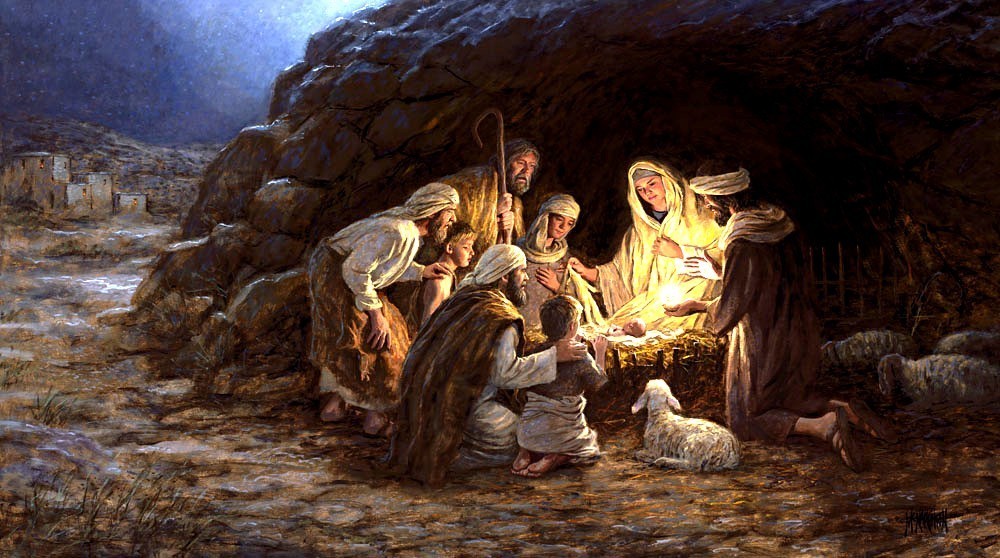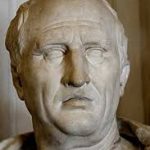I used to know it all. I used to have it all figured out. I had answers for almost everything – including backup answers in case my first answer was insufficient. My “life-verse” was first Peter 3:15, which served as my motivation to “always be prepared to give an answer.”
I used to be obsessed with knowledge. In fact, at times I would fall into despair if I came across a problem I could not figure out. I looked at external sources of knowledge (such as philosophy and science) as ways to bolster my beliefs. If I found something that seemed contradictory, I would throw it out. I listened to every debate and read every book I could get my hands on.
Outside of being unstoppable at Bible trivia, my obsessions ultimately resulted in the creation of a nearly flawless systematic theology that was so tightly reasoned, one’s search for a hole would result in long periods of hair pulling and Christian expletives. My faith was strong as it was constantly being strengthened through the certainty that accompanied consistent logical reasoning. I was in every sense of the word – a modern evangelical.
Then I met Jesus – and he turned everything upside down.
When “KNOWING Jesus” is not the same thing as “knowing a Jesus”
Like many modern evangelicals, I was introduced to Jesus through Paul. That is, I was sent on a journey with the Apostle down the “Romans Road” until I found Jesus (or perhaps he found me). The idea is that when we met, I would find his grace so irresistible that I could not help, but except his free gift.
…and as the story goes, the two lived happily ever after!
Perhaps if I wanted to live my life under a veil of ignorance I could accept such a fate, but if evangelicalism taught me anything, it was to never settle for anything less than the truth.
Presenting Jesus through the eyes of Paul has been the standard in evangelicalism’s evangelism (wow, say that 10 times fast) for a very long time. Its purpose is really to assist lazy individuals who don’t want to take the time to share the Gospel through the relationships they build with others. Unfortunately, this is not only “false advertising”, but it also leads people to the wrong Jesus.
Christ DID NOT come to save your sins!
Gasp!
I know…I know. If you were trained well, you have probably begun running through a myriad of verses in your head that claim otherwise. You have them at the ready to shoot off in the comments section below in order to “prove” your case. Let me pre-empt that temptation and ask for the benefit of the doubt until you have finished reading the article in its entirety (believe it or not, some people would stop right here and just begin ranting).
There is no doubt that the Jesus I, and probably many of you, were introduced to is the one who came down from heaven to save you from your depravity in order that you could have eternal life. Sound about right?
The problem for me was that just because I was “saved” that didn’t mean I stopped sinning. Now I just feel guilty about it. I mean, sure, I can try to resist the urge to steal or lie. However, if we were being honest with ourselves we would notice that we simply replace old sinful habits with new ones say, gossip and intolerance, for example.
It is for this reason that many new Christians and/or immature Christians feel the need to be assured of their salvation- they are paranoid. This type of paranoia is a natural psychological reaction to the fact that the individual is still a sinner even though they have become a Christian. But the evangelical focus in evangelizing, preaching and teaching is primarily on sin, which serves as a constant reminder of one’s inadequacies and failures to overcome their inherited defects.
I agree that sin is a vitally important theological concept to understand. However, I do not believe it is or should be the foundation of the gospel message. My reason is not arbitrary but is a result of what I believe to be a proper reading of the incarnation narratives. And I don’t think a proper reading of the incarnation narrative is to do it backward (from Paul to Jesus). Instead, we should read it forward. To put it simply, a proper reading of the Gospels must be done in light of the Old Testament (OT).
Rarely do we look to the OT for guidance on understanding the purpose of the incarnation. We either read it independently or in light of the Apostle Paul. I would like to suggest that understanding the Gospels properly necessitates an understanding of the OT. The meaning of the Gospels (and more specifically, Christ) is completely encapsulated by their Jewish heritage and is, thus, inseparable from it. Moreover, doing so will not only redefine how we understand the incarnation but the whole of the gospel message.
O Holy Night and the real Christmas story
O Holy Night is my favorite Christmas song. It’s a perfect expression of melodic tempo and lyrical sophistication. It paints a perfect image in our imagination of the setting and meaning of our Lord’s birth. The tempo of the song crescendos at just the right moments in order to emphasize the important aspects of the event. When I listen to it, I feel like I have been transported there. I know his arrival is important, but few are there. I know he is the Word of God, but there is no one there to listen. I know he is a king, but I don’t see any followers. I imagine that he is lonely, cold, and laying in a manger – and I know he is my Lord.
It was indeed a holy night!
In the opening lines of the song we come across the lyric “It’s the night of our dear Savior’s birth.” This is a very common expression of the incarnation and is found throughout the various Gospels.
The question I would like us to ask is: “what is meant by “savior”?
Traditionally, we understand this to mean he will save us from our sins. Certainly, if we are reading it through the eyes of Paul that is how we’ll read it. However, what if we read it as part of the OT. Let’s imagine we have no Bible verses and other delineations (after all, these are a product of Medieval Christianity.) In other words, imagine we are reading it as it was meant to be read.
The Christmas story does not begin in the Gospels, but in Genesis.
In the beginning, mankind was whole – existing in perfect harmony with self and others. They were ruled by a kind and generous Creator who lavished his kingdom with the essentials for all that was beautiful and desirable. And God loved what he had made because it was good.
But mankind was not satisfied with what their Lord and King provided them. They had long desired to acquire knowledge and wisdom; for how could they know that what he had provided for them was best for them. So, they “ate from the tree of knowledge”; the very tree they were commanded to stay away from. Having relied on their own knowledge and wisdom they became wanderers, lost in a foreign land, and unable to return to the bliss they once had. Mankind cried out to God for help.
But, God loved what he had made because it was good.
So, he established a covenant people – a light to illuminate the path home. But this covenant people continually rebelled, unable to relinquish control over to God. They were powerless to see God through the filth of their own depravity and disobedience. They became lost – wanderers in a foreign land. Out of their slavery, they cried out to God for help.
But, God loved what he had made because it was good.
So he established a nation. He established a kingdom that would allow his people to flourish in a land that was flowing with milk and honey – a beauty reminiscent of how mankind existed before. God provided land that would be sufficient for their needs and he would be their Lord and King.
But they saw how the nations around them lived and desired to have more. They desired to demonstrate their wealth and influence; and to have a political power to represent them. They were not content with what God had provided. They were not content with God as their King. So God gave them over to their desires and they became lost – wanderers in a foreign land. Out of their bondage, they cried out to God for help.
But, God loved what he had made because it was good.
So he sent messengers to his people – the prophets. They would help re-establish the relationship between God and his people. Now God’s people were able to directly communicate with him. But they were not happy with what God had provided and desired more. So, they enslaved their own people and discarded the poor. They turned the house of the Lord into a den of thieves and robbers where they prostituted their own women. So God gave them over to their desires and they became lost – wanderers in a foreign land.
But, God loved what he had made because it was good.
So he became silent for 400 years.
Then God spoke! He spoke in a way that his people had not heard before. Surely now his words would not fall hollow across the hearts of his people. His words were like cries that can be heard from a tiny stable. Cries and gasps for air, like those of a newborn, which ring out as lonely echoes upon the quiet night’s ether.
God loved what he had made because it was good.
So he sent the people his Word. But these were not entrusted to mere mortals. This time he would speak directly to his people. He would restore his people and give them hope for the future. And in so doing this he would save his people from their sins – they would be no more. Now he would establish his kingdom; for on this day, in the city of David, a child was born who is Christ the Lord.
It was indeed a very holy night, the night he became one of us. Immanuel- God. With. Us. That is the good news.
Amen.

























Julian
December 18, 2014Great article. I’ve been loving your posts. I seem to have been on a similar journey to yourself. Just wanted to encourage you to continue. This kind of thinking is so so needed. It seems there are many of us desperate for truth. Not in an attempt to gather ammunition to support our current doctrinal castle, but because we’ve come to a place in God, were we are unafraid to think. Trusting the words of Jesus, “You will know the truth and the truth will set you free.” We seek a relationship with what is real. We do not worship a concept or a theological construct but rather a person, a triune God who gave up everything so that we could experience freedom from our own self-obsession. Blessings brother. Keep up the good work.
Eric English
December 18, 2014Julian…thanks so much for taking the time to write this encouraging note. A recharging is always needed.
I echo your sentiments as well – especially regarding “seeking what is real”. I am oftentimes baffled at how certain Christians are willing to “die for the truth”, but care not for anything real. In my opinion we are not the crazy ones, they are!
Thanks again for the note – always great to hear from readers!
gralion torile
November 16, 2023Hello there! This is my 1st comment here so I just wanted to give a quick shout out and say I truly enjoy reading your blog posts. Can you recommend any other blogs/websites/forums that deal with the same subjects? Thanks for your time!
Duncan Orsburn
December 3, 2023Hmm is anyone else having problems with the pictures on this blog loading? I’m trying to determine if its a problem on my end or if it’s the blog. Any feed-back would be greatly appreciated.
online chat with strangers
December 3, 2023You made some decent factors there. I appeared on the web for the difficulty and found most individuals will go together with with your website.